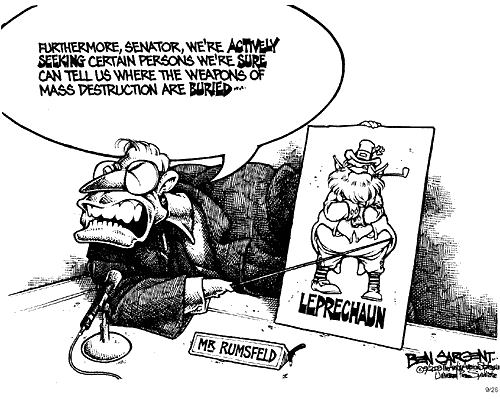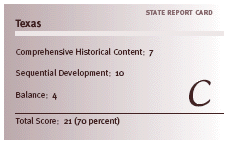The Trickster is a GIANT compared to W! The Trickster could take ideas seriously. If W had a thought, he would dial 911, thinking he was having a cardiac incident. Garry Wills wrote the best book on the trickster in the '70s: Nixon Agonistes. The best Molly Ivins could do for W was Shrub: The Short, Happy, Political Life of George W. Bush. The Trickster was contemptible, yet Garry Wills accorded him a connection to the literary canon. W's sole literary connection would be to Dick and Jane readers. I miss the Trickster. He would not have mucked around in RummyWorld. If this be (fair & balanced) nostalgia, so be it.
Friends in highbrow places
Nixon the populist anti-intellectual delighted in the literary realm
by Jeet Heer
National Post
Republican presidential nominee Richard Nixon in Columbus, Ohio, October, 1968. Aside from Woodrow Wilson, Nixon was the best-read U.S. president of the 20th century.
Like so many other right-wing Americans, Richard Nixon loved to rail against intellectuals. "The so-called intellectuals are against us," Nixon can be heard muttering in one of his White House self-recordings. With such words, Nixon was merely echoing the familiar pose of conservative public figures, who so often present themselves as plain folk whose native common sense saves them from being bamboozled by the fancy talk of the cultural elite.
In the 1950s, Senator Joseph McCarthy warned that "eggheads" were likely to be communist spies, while in the following decade George Wallace derided his opponents as "pointy-head college professors who can't even park a bicycle straight." More recently, we have Ann Coulter's febrile fulmination against "treasonous" Americans who are supposedly hiding out at universities and in high-end newspapers such as The New York Times.
Yet if Nixon belonged to a long line of American anti-intellectuals, he had a rather awkward spot within this tradition, since he himself was something of an intellectual. Nixon always resented the fact he received a backwater education at Whittier College and Duke University while such well-born rivals as John Kennedy got to go to Harvard and other Ivy League schools. Perhaps to compensate, Nixon, throughout his adult life, would continue with a strong regimen of extra-curricular reading.
Aside from Woodrow Wilson, Nixon was the best-read U.S. president of the 20th century. Throughout his life, he would pick up highbrow magazines (notably Commentary and National Review) searching for fresh ideas. During his presidency, Nixon's happiest moments were spent conceptualizing public policy with such thinkers as Daniel Patrick Moynihan and Henry Kissinger, both erstwhile Harvard professors. Unlike the seedy backroom operatives who also populated the Nixon White House and carried out the Watergate burglary, Moynihan and Kissinger satisfied their boss's hunger for smart talk about social trends and geopolitics.
While he never let go of his animosity toward liberal and radical intellectuals, Nixon took a bookish delight in corresponding with learned writers. To see the intellectual half of Nixon's divided personality, we need only look at his correspondence with several major literary critics.
As a lifelong conservative, one might think Nixon would have had little use for Leslie Fiedler, the maverick essayist who died this year at age 85. Known as the "original wild-man critic," Fiedler first gained notoriety in a 1948 article titled Come Back to the Raft Ag'in, Huck Honey!, in which he argued that homoerotic interracial love was one of the great unacknowledged themes of American literature.
The relationship between Huck Finn and the slave Jim was Fiedler's main example, but he would later note that most Hollywood buddy films also gave primacy to cross-ethnic male bonding over heterosexual love.
With their iconoclastic take on the classics of American literature, Fiedler's essays seemed designed to offend conservative sensibilities. By the 1960s, Fiedler had morphed into a middle-aged champion of the hippie culture. In 1967, the State University of New York-Buffalo English professor was even busted for marijuana possession.
But in the early 1950s, the ardently anti-Stalinist Fiedler attracted Nixon's favour. In a controversial 1951 Commentary magazine article, Fiedler condemned liberals who refused to accept the fact that prominent New Deal civil servant Alger Hiss had spied for the U.S.S.R. and committed treason. "American liberalism has been reluctant to leave the garden of its illusions," Fiedler argued, lamenting the "half-deliberate blindness of so many decent people." He went on: "There is no magic in the words 'left' or 'progressive' or 'socialist' than can prevent deceit and abuse of power."
In writing his essay on Hiss, Fiedler was both living up to his bad-boy reputation and articulating the position of the New York intellectuals, a group of radical writers that then congregated around journals like Partisan Review and Commentary. At that time, a major goal of the New York intellectuals was to purge the political left of any sentimental illusions it might have about Soviet communism. Since many of the intellectuals had been Trotskyists in the 1930s, they had an acute sense of Stalin's villainy.
Nixon, who built his political career on his pursuit of Hiss, was probably unaware of the radical provenance of Fiedler's essay, but he enjoyed its anti-liberal thrust. Then a senator from California, Nixon immediately sent Fiedler a fan letter, which was made public by Mark Royden Winchell in his recent biography "Too Good To Be True": The Life and Work of Leslie Fiedler (University of Missouri Press).
"So much has been written and said about this case which has completely missed the real points involved, that it was pleasure for one who was so close to it, as I was, to read the objective analysis which you presented," Nixon wrote to Fiedler.
Nixon's other dealings with literary critics were confined to more conservative thinkers. As vice-president in 1958, Nixon corresponded with the great scholar of modernism Hugh Kenner, reassuring him that Ezra Pound would not be indicted for treason for his activities during the Second World War. As a frequent writer for the conservative magazine National Review and a friend of right-wing pundit William F. Buckley, Kenner was much closer politically to Nixon than Fiedler was.
Oddly enough, Kenner would later write an interesting essay about Nixon, not as a politician but as a literary figure. In 1974, Kenner reviewed for National Review a book titled The Poetry of Richard Milhous Nixon, in which Jack Margolis took various statements from the Watergate tapes and elsewhere and turned them into found poetry. (The Margolis book anticipated future volumes of found poetry based on the utterances of Jean Chrétien and Donald Rumsfeld.)
"These are no sonnets for an idle hour," Kenner wrote, in a brilliant mockery of lit-crit clichés. "Stark, tense, hard-bitten, cunningly disequilibrated -- tiptoe, in fact, on the needlepoint of our century's anguish -- these poems speak to and for the thwarted Tamburlaine that lurks in the psyche of urban America."
Perhaps Nixon's closest friendship in the literary world was with Jeffrey Hart, now a retired English professor at Dartmouth and senior editor at National Review. Hart worked for Nixon in 1968 as a speechwriter. In 1978, after Nixon had resigned in disgrace from the Presidency, Hart reviewed his old employer's memoirs in National Review. According to Hart, the memoirs were a "tremendous" work unfairly slagged by other reviewers, "who would pan War and Peace if Nixon were its author."
As so often in the literary world, friendship led to log-rolling and mutual back-scratching. In 1990, when asked by The American Spectator to recommend Christmas gifts, Nixon suggested Hart's Acts of Recovery, which attacked feminism and multiculturalism while celebrating such Tory cultural heroes as Samuel Johnson, Edmund Burke, and T.S. Eliot. Although Hart's book is a rather humdrum exercise in right-wing polemics, Nixon's recommendation is quite revealing. In Hart, Nixon found a literary critic who shared his own combination of bookishness and hostility toward the politics of liberal professors.
© Copyright 2003 National Post

